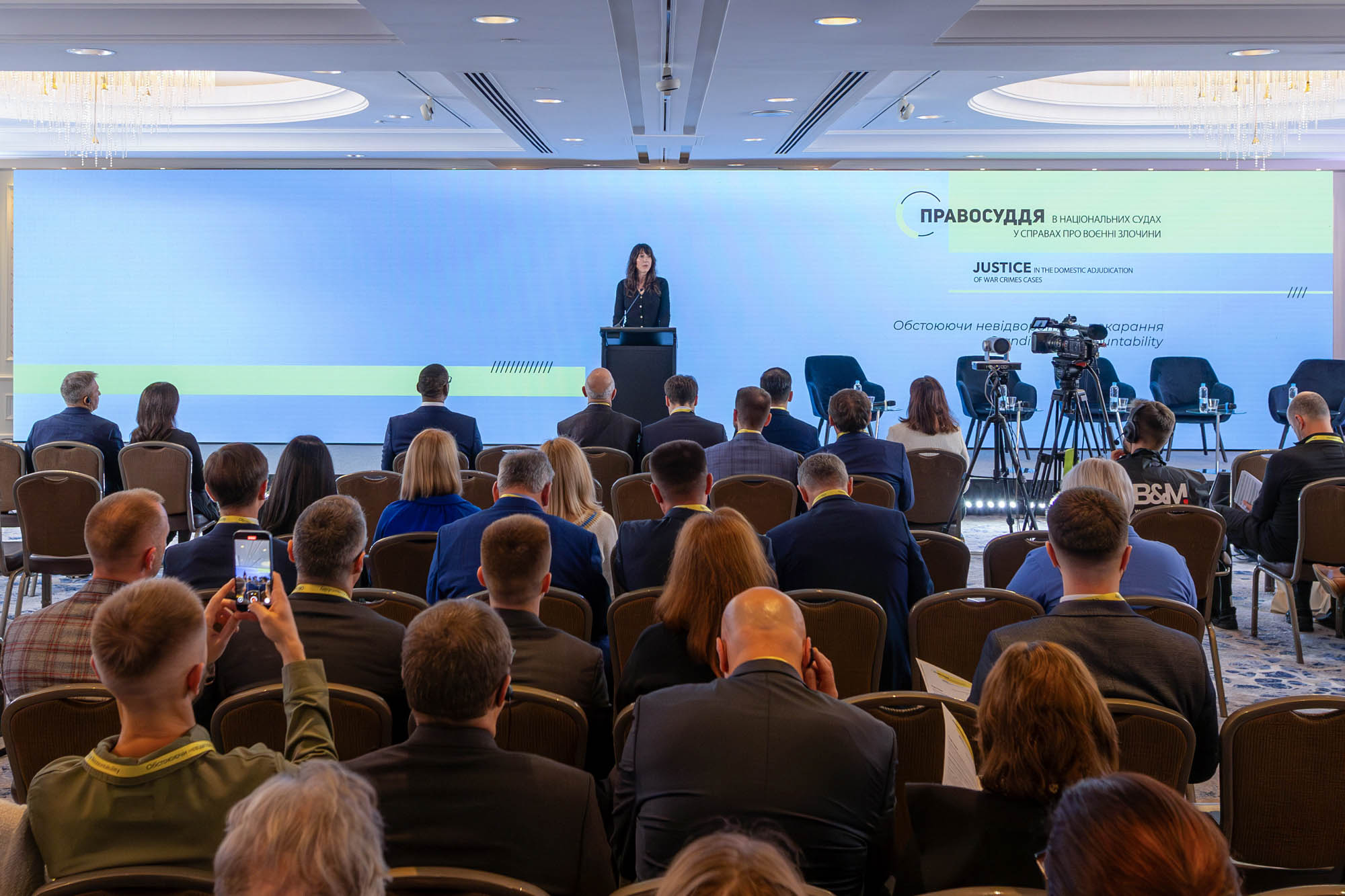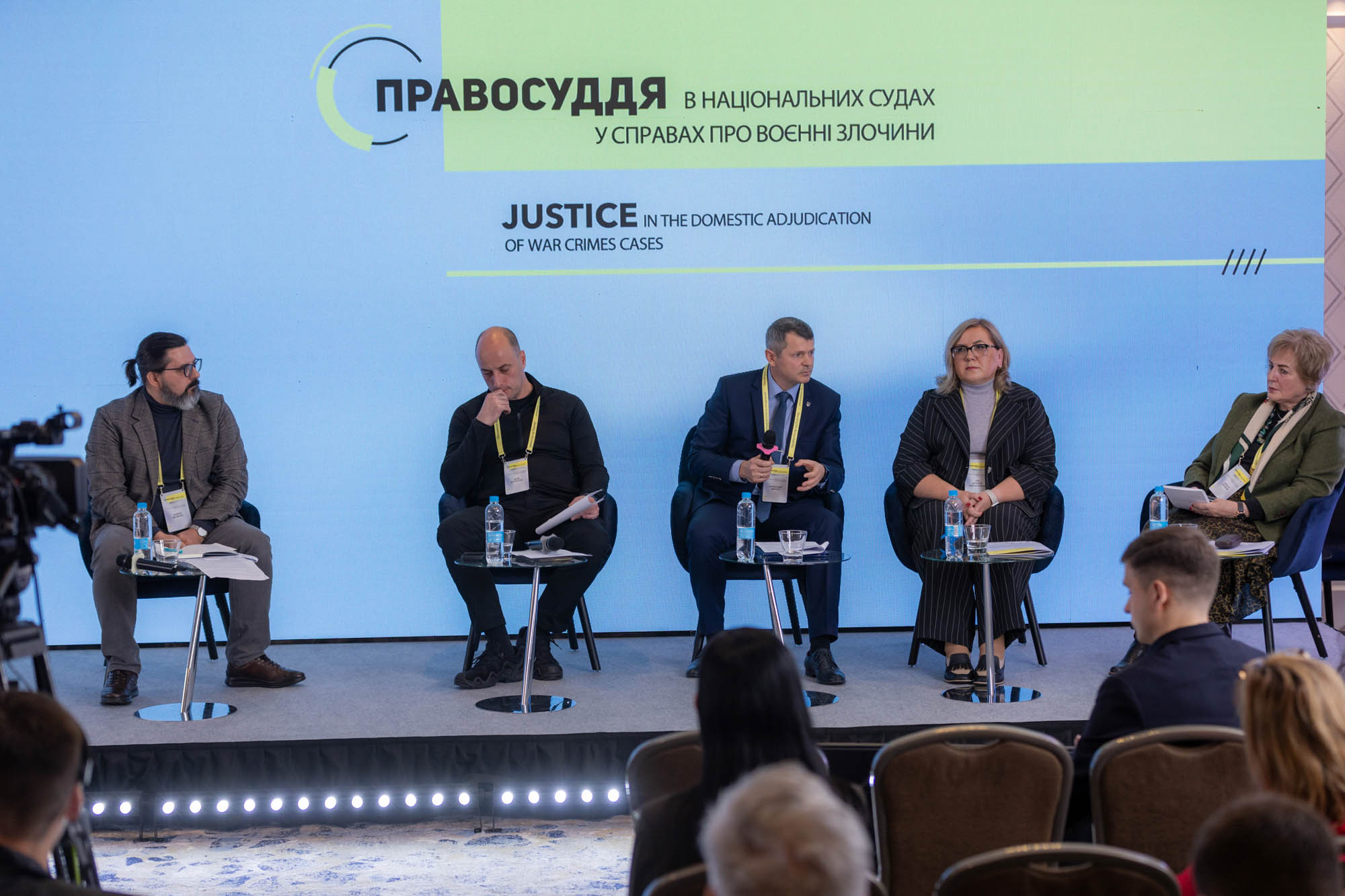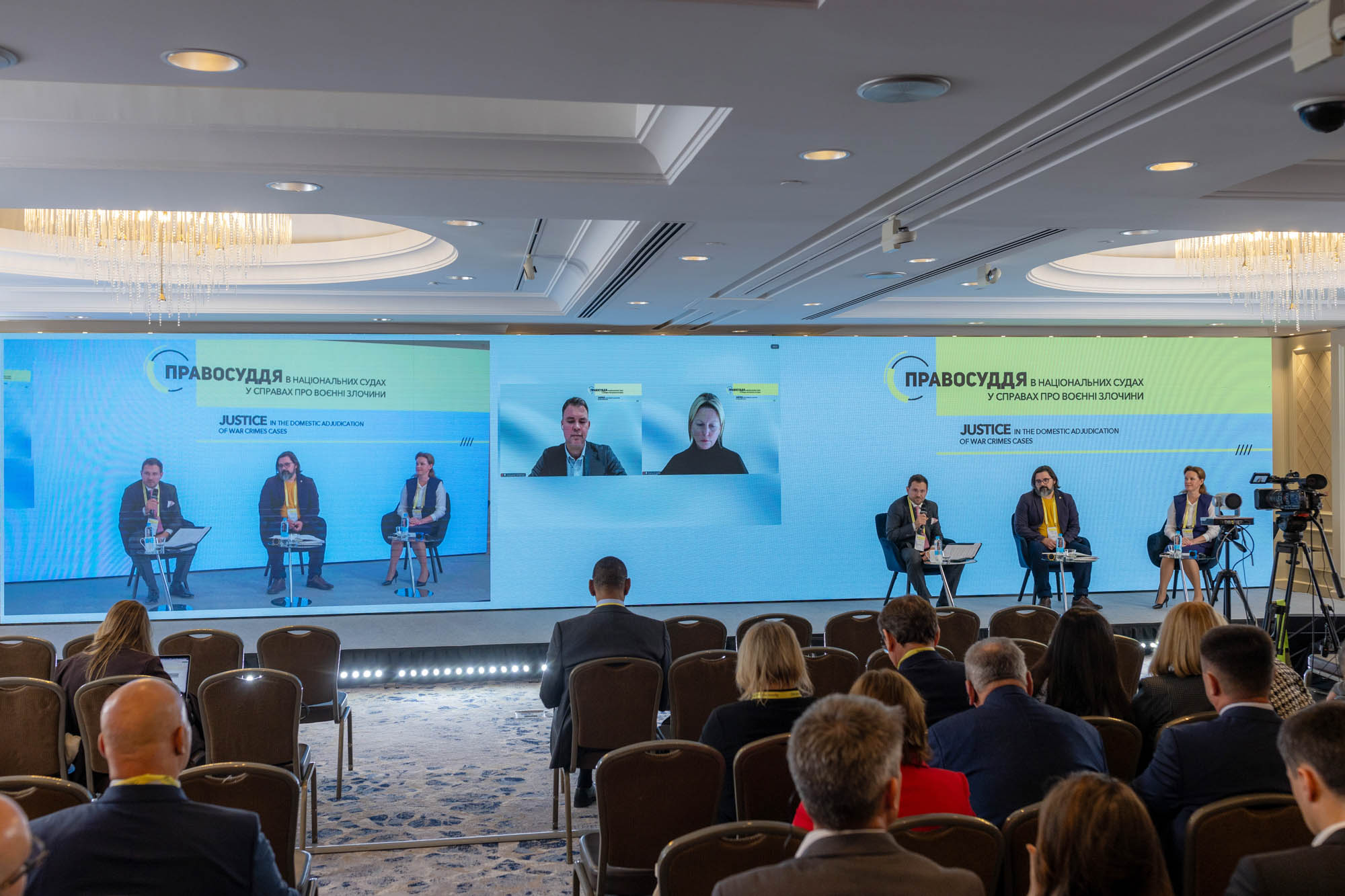The Inevitability of Justice: How Ukraine is building war crimes accountability
On October 24-25, 2024, the Second Annual Conference on "Justice in National Courts for War Crimes" took place in Kyiv, organized by USAID Justice for All Activity in collaboration with Ukrainian and international partners. Held under the banner "Advocating for the Inevitability of Justice," the event brought together over 170 participants, including judges, prosecutors, lawyers, members of parliament, civil society representatives, and international experts.
Opening the conference, Ann Hopper, USAID Ukraine's Director of the Democracy and Governance Office, highlighted the immense responsibility of Ukrainian courts in delivering justice. "Over 140,000 war crimes cases have already been registered, and many more are expected. Ahead lies a challenging but vital task – ensuring justice. The world must see that the guilty will not go unpunished," she noted.

The conference covered critical aspects of war crimes adjudication. Judges, lawyers, and human rights advocates discussed the current handling of these cases in Ukrainian courts, emphasizing the need to maintain fairness and impartiality even in wartime.

Zoia Zahynei-Zabolotenko, an expert with the UBA’s "War Crimes Trial Monitoring Project," reported on the results of the monitoring conducted on criminal proceedings related to war crimes. This monitoring covered Kyiv and 10 regions, along with an analysis of final court decisions under Article 438 of the Criminal Code of Ukraine.
The speaker highlighted specific issues regarding the criminal legal qualification of war crimes (particularly concerning the determination of the form of complicity), sentencing (including the consideration of aggravating circumstances such as the commission of the crime repeatedly, in a generally dangerous manner, and using the conditions of martial law), as well as addressing certain criminal procedural problems in the court examination of war crime cases, such as trials conducted in absentia and ethical issues regarding the participation of the defense/accused during the court proceedings. Overall, the speaker emphasized that the monitoring did not reveal systemic problems during the court examination of war crime cases.
Another vital topic was enhancing legislation in this field. Experts emphasized the importance of aligning Ukraine’s legal framework with international standards to strengthen the country’s judicial system on a global level. Special attention was given to ensuring the safety of victims and witnesses involved in such cases. As participants noted, creating an environment where every victim has a guarantee of protection, free from fear of retraumatization, is essential.

Mykola Stetsenko, President of the Ukrainian Bar Association, moderated a session on the role of defense counsel in war crimes cases, emphasizing the importance of ensuring equal procedural opportunities for all parties. "The role of defense attorneys in war crimes trials is immensely important, as we are fighting to establish the rule of law and justice in our country. A full and proper defense for the accused is one of the cornerstones of justice in society," Mr. Stetsenko stressed.
Participants also explored issues of court administration and digitalization. They concluded that a more effective judicial system requires technological advancements and greater transparency in court operations. This approach will not only facilitate faster access to information but also reinforce public trust in justice.
Closing the conference, participants agreed that achieving justice in war crimes cases is not only about punishing the guilty but is also a crucial step toward peace and national recovery. Mutual support and collaboration on these challenges lay the foundation for a justice system that will be a pillar of resilience and hope as Ukraine rebuilds and moves forward.
Tags: UBA news, UBA activities
